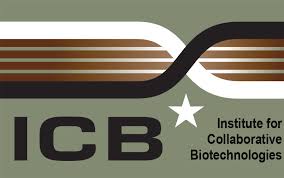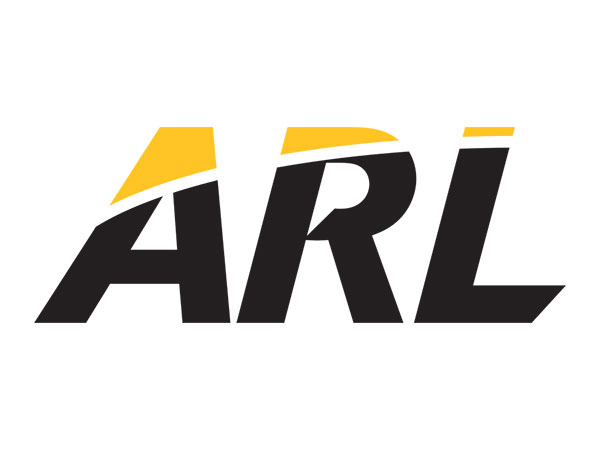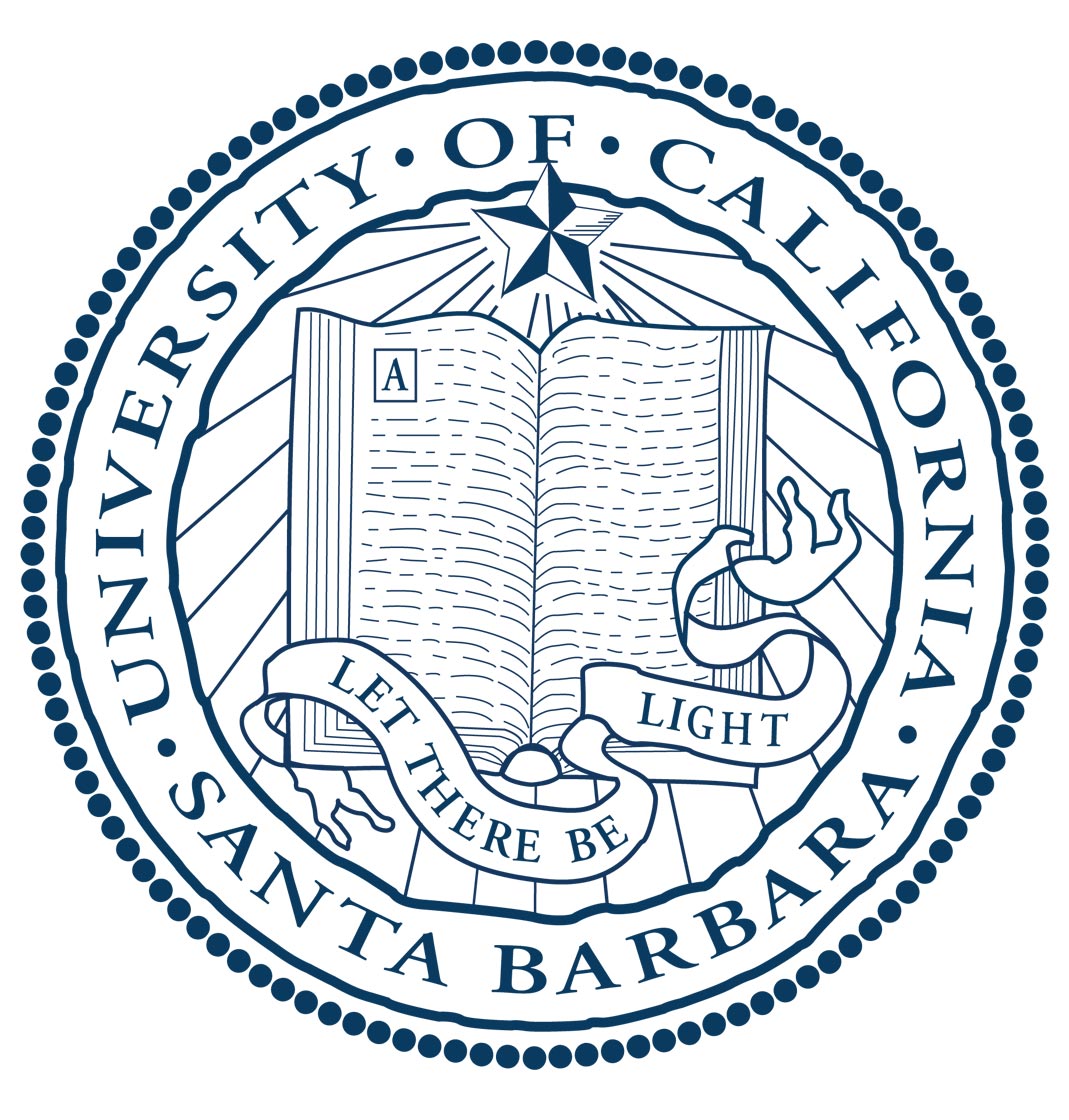The Moral Narrative Analyzer
The cutting-edge system for advancing the construction, analysis, and evaluation of narratives
Meet MoNA. Advance Narratives.
Fables and fairy tales, nursery rhymes, novels, and even “the daily news” we spread among ourselves all weave a tapestry of truisms that we transmit through generations. Today, our cultural myths are not only preserved in archives and memory but through cinematic adventures, discussion forums, and news coverage on grand scales. Yet the question remains, amidst technological advancement, how exactly do narratives presented via film, public debate, and news teach us about ourselves and become relevant? MoNA provides answers to these questions.
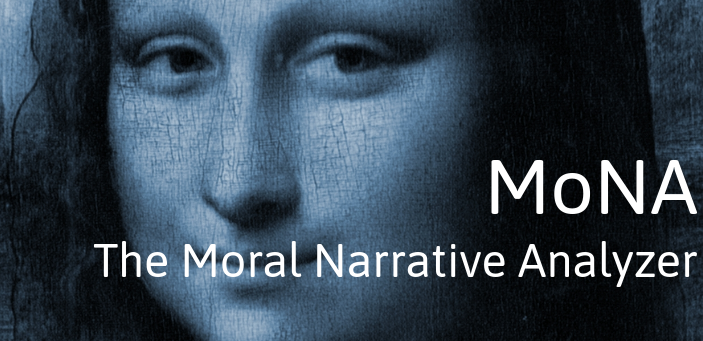
Machine-Learning. Human-Powered.
MoNA extracts the fundamental moral domains that permeate narratives, identifies systematic differences in these domains across sources and cultures, and reveals the underlying temporal dynamics of moral perspectives in narratives that drive judgment and decision making in various types of audiences (e.g. movie goers, news viewers). MoNA is using advanced natural language processing methodology for the analysis of large quantities of unstructured narratives from narratives around the globe. Since topics are often subjective and difficult to identify using computerized language processing methods alone, MoNA provides a hybrid between automated computational methods and evaluations from crowds who are exposed to moral narratives.
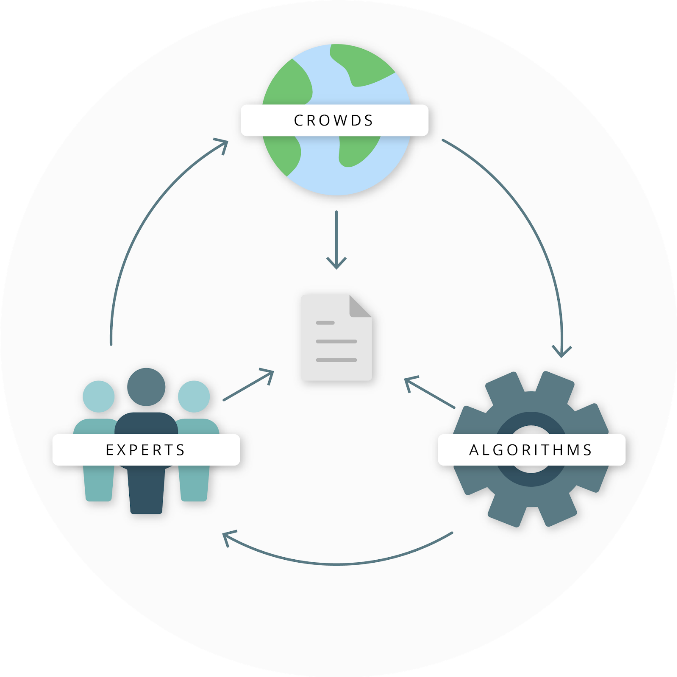
Debate and Discuss. Learn and Grow.
To understand the real-world dynamics of opinion formation based on processing moralized messages surrounding morally contentious topics, MoNA employs experimentally-controllable, interactive, and scalable online discussions. Applying innovative mathematical models of moralized opinion dynamics, MoNA links individual and group behavior in controlled lab experiments to behavioral observations in larger crowds, and eventually, makes predictions how the determinants of various debate systems spur groups of individuals to endorse collective action and other forms of activism.
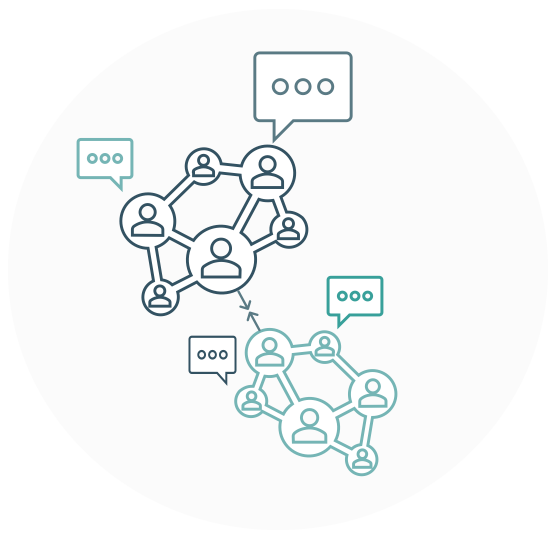
UX Driven Design. Proven Annotation Tools.
Measuring moral information in messages is challenging. The majority of moral message cues are latent and context-dependent. Furthermore, individuals differ in how they interpret the moral content of messages. To tacke these challenges, MoNA's content annotation tools have been designed over a series of empirical studies to provide state-of-the-art solutions for obtaining highly reliable and valid content codings. Importantly, content-analytic workflows can be flexibly tailored towards particular content categories, including but not limited to movie scripts, political speeches, news, and even song lyrics.
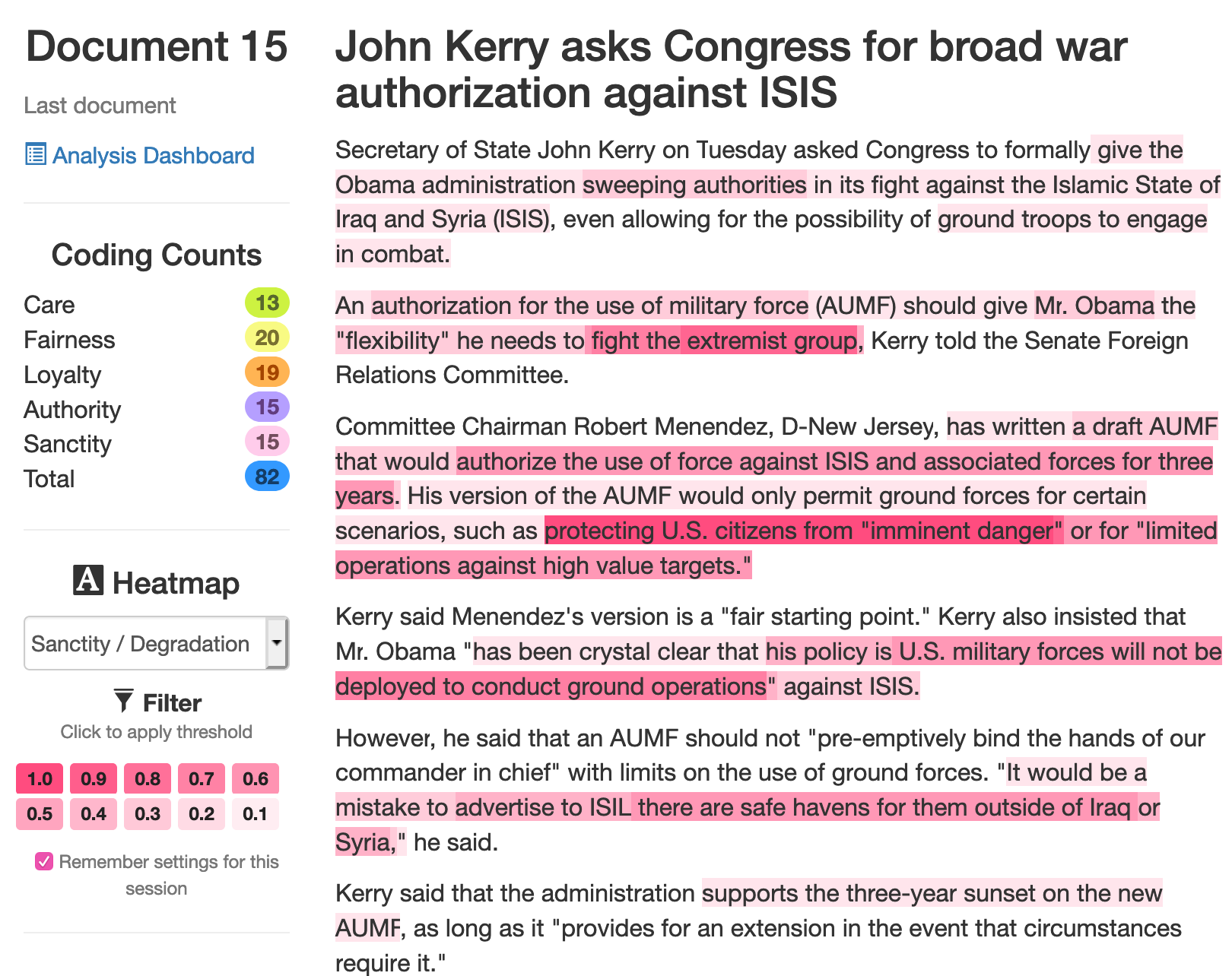
What makes a good story? Moral Conflict.
Narratives that present moral information and trigger moral emotions capture individuals’ attention and motivate actions. Narratives that represent moral conflict by simultaneously upholding and violating moral norms are especially motivating. To detect moral conflicts in narratives, MoNA computationally abstracts narratives into its constituent parts, such as agents and event-chains. Subsequently, MoNA employs natural language processing algorithms to ascertain the ways in which moral conflict unfolds within narrative structures.
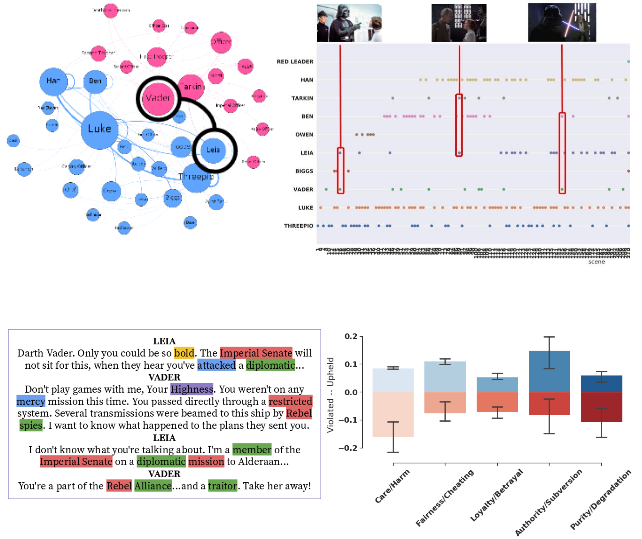
Global Scale. Detailed Insights.
MoNA provides automated, near real-time measurement of moral emotions and moral conflicts in over tens of thousands of global news articles. By combining various statistical prediction techniques, MoNA seeks to forecast the onset of moral conflicts in regions across the world.

Partners


